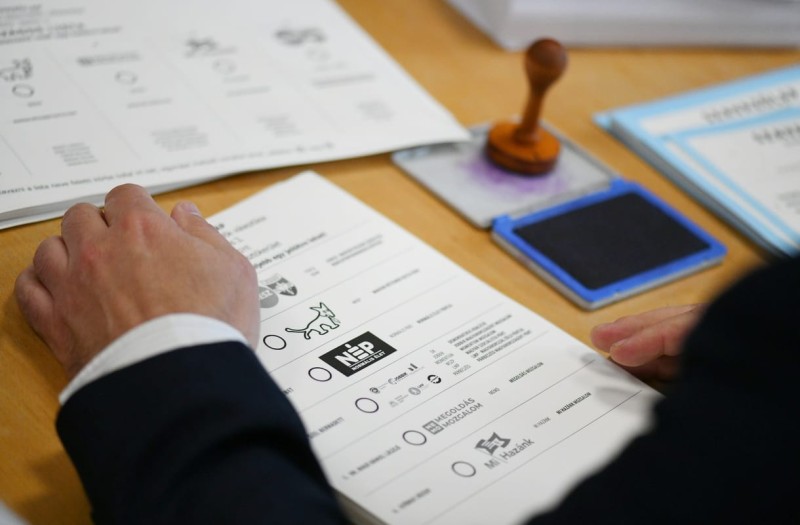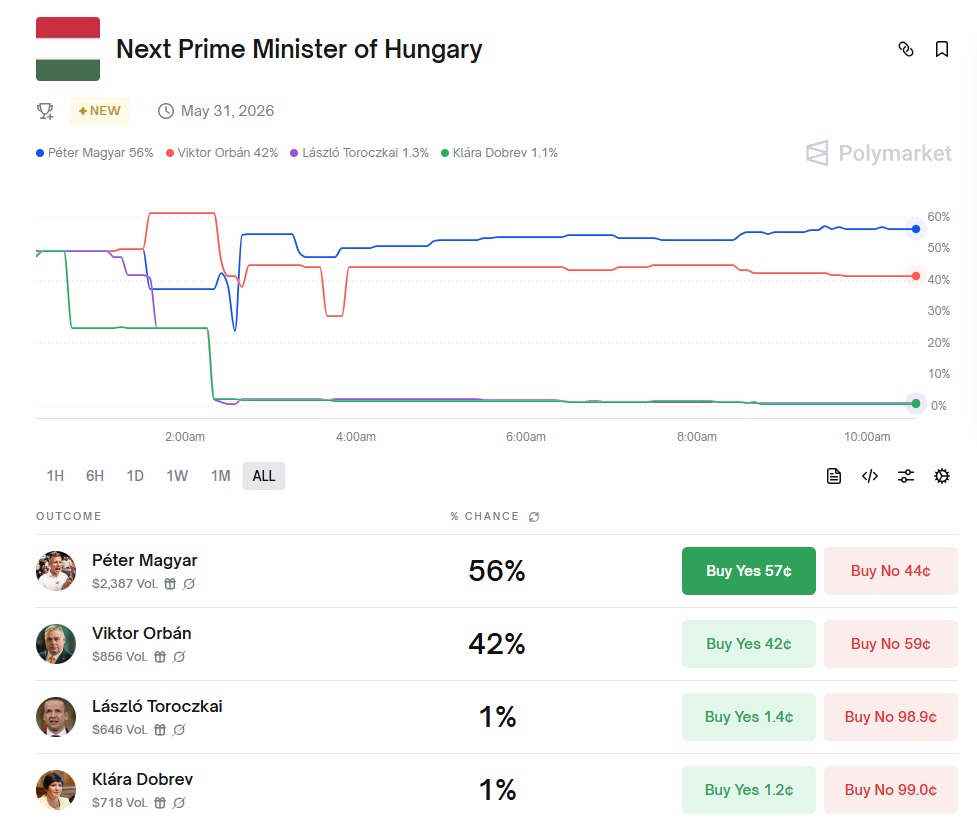Polymarket Bets Against Fidesz: Péter Magyar Emerges as the New Favorite

If someone had said a few years ago that Hungary’s next prime minister would be debated not only in Parliament but also on a global blockchain-based prediction market, many would have been skeptical. Yet this is exactly what is happening today. Polymarket, a decentralized platform, now allows people from across the world to place real-money bets on who will lead Hungary next. Surprisingly, the current trends increasingly seem unfavorable for the incumbent Viktor Orbán, signaling a potential historic shift.
Where Crypto Meets Hungarian Politics
Polymarket is a blockchain-based prediction market where users from around the world wager real money on the outcomes of major events, including political elections. Instead of answering a poll, participants buy and sell shares with their own funds, turning every forecast into a financially backed bet.
Polymarket provides an innovative space where futures can be traded on a variety of events—from U.S. elections to sports outcomes—and now, the Hungarian prime ministerial contest. Unlike traditional polls, Polymarket users stake their own funds on their predictions, making it a financially committed community of global participants. This means that Hungarian political developments are being actively shaped and scrutinized by a worldwide audience engaging in real-time trading.
Orbán’s Position is No Longer Secure
According to Polymarket’s latest data, Péter Magyar of the Tisza Party holds a 56% chance of winning, while Viktor Orbán stands at 42%. This gap is especially striking given Orbán’s prolonged dominance in Hungarian politics. Mainstream polling data corroborate this shift: Magyar’s support now consistently ranges between 45-51%, with Fidesz’s backing generally between 36-47%.

Polymarket indicates Péter Magyar as the frontrunner – Viktor Orbán is now second on the decentralized betting platform, marking a historic shift in political market expectations.
What sets Polymarket apart is that every stake represents a real financial commitment—participants are willing to risk their own money on the outcome, which often signals a deeper conviction than passive polling responses. This financial “skin in the game” can sometimes foreshadow political trends before they’re fully reflected in conventional surveys.
An important context for interpreting these dynamics comes from recent changes in Hungary’s regulatory landscape. The July 2025 modification of the Hungarian cryptocurrency law imposed stricter regulations and uncertain tax burdens on decentralized finance users. This legislative shift may have alienated many within the cryptocurrency and blockchain community—a demographic that is not only active on platforms like Polymarket, but also generally supportive of transparent, decentralized systems. Consequently, the prediction market may now be reflecting not just objective political expectations, but also a backlash from crypto enthusiasts who felt negatively impacted by government policy.
Altogether, the convergence of mainstream polls and decentralized market signals suggests that Magyar’s momentum is both genuine and substantial—now further amplified by disaffected crypto users expressing their dissatisfaction in a forum where their voices have direct, monetary impact.
A New Chapter in Hungarian Election Forecasting
Hungary’s upcoming election has stepped beyond a national affair into the realm of international digital trading floors, where political forecasts fuse with decentralized finance. Regardless of personal political views, the data painting Péter Magyar as the leading contender is compelling—from both traditional polling and the Polymarket prediction market alike. This election represents not just a political contest but also a historic moment illustrating how blockchain technology and global financial sentiment intersect with democracy. As the race unfolds, every crypto-dollar wagered on Polymarket adds a new dimension to how we understand and anticipate the future of Hungarian leadership.